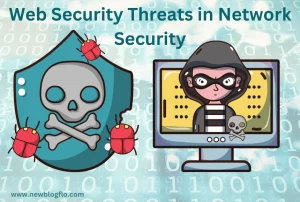The Future Scope of Software Engineering and Cybersecurity
Emerging trends in Software Engineering
Emerging trends in software engineering encompass a wide range of technological advancements, including network security and the ever-growing field of cybersecurity. As the world becomes increasingly interconnected, the need for robust software development practices is more critical than ever.
This has led to a surge in demand for professionals who possess the skills and expertise to navigate the complex landscape of software engineering vs cybersecurity. Stay ahead of the curve and explore these exciting new trends shaping the future of software engineering.
Emerging trends in Cybersecurity
Emerging trends in cybersecurity are transforming the landscape of software development and network security. As technology continues to advance at an unprecedented rate, the need for experts in both software engineering and cybersecurity is becoming more critical.
Organizations must stay ahead of the curve by understanding the differences between software engineering and cybersecurity and implementing robust strategies to protect their valuable data and systems from cyber threats.
Predictions for job growth in both fields
When it comes to the ever-evolving world of technology, predictions for job growth in the fields of software development and network security are both intriguing and essential. As software engineers continue to push the boundaries of innovation, the demand for skilled professionals in this field is expected to skyrocket.
However, with the rise in cyber threats, the need for cybersecurity experts is also on the rise, making it a highly sought-after career path. In the coming years, job opportunities in both fields are expected to surge, offering promising prospects for those interested in the intersection of software engineering and cybersecurity.
Conclusion
Recap of the major topics raised in the article
In the article, we explored the crucial aspects of software development and network security, shedding light on the distinctions between software engineering and cybersecurity.
We delved into the intricacies of these domains, highlighting the importance of robust security measures and the need for skilled professionals to safeguard sensitive data.
This recap aims to consolidate the key points discussed, serving as a reminder of the critical considerations in the ever-evolving landscape of technology.
Final thoughts on choosing a career path between Software Engineering and Cybersecurity
- Consider your passion: While both software engineering and cybersecurity offer promising career paths, it’s crucial to consider your passion for the subject matter. If you find yourself more intrigued by coding and building software applications, software engineering may be a better fit. On the other hand, if you have a keen interest in protecting digital systems from potential threats and enjoy problem-solving, cybersecurity might be the path to pursue.
- Job market demand: Take into account the current and projected job market demand for software engineers and cybersecurity professionals. Both fields are experiencing growth, but it’s worth researching the specific demand in your area or desired location. This information can help you make an informed decision about the availability of job opportunities and potential career growth.
- Skillset alignment: Evaluate your skills and strengths to determine which career path aligns better with your abilities. Software engineering requires proficiency in programming languages, problem-solving, and software development processes. On the other hand, cybersecurity demands a solid understanding of network security, vulnerability assessment, and risk management. Assessing your existing skillset can provide valuable insights into which path you may excel in and enjoy more.
- Long-term prospects: Consider the long-term prospects and potential advancements within each field. Software engineering offers opportunities to work on various projects, collaborate with teams, and potentially move into leadership roles. Cybersecurity, on the other hand, provides a chance to specialize in specific areas such as ethical hacking, digital forensics, or security consulting. Understanding the growth potential and future prospects of each field can help you make a decision that aligns with your career goals.
- Continuous learning: Both software engineering vs cybersecurity require a commitment to continuous learning. Technology advances rapidly, and staying up-to-date with the latest trends and developments is crucial. Evaluate your appetite for ongoing learning and professional development. If you enjoy constantly expanding your knowledge and skills, both fields can offer exciting opportunities for growth and lifelong learning.
Remember, choosing a career path is a personal decision that should consider your interests, skills, and aspirations. Take the time to reflect on these factors, and don’t hesitate to seek advice from professionals in the field or explore internships and entry-level positions to gain practical experience before committing to a specific career path.
References
Citing references to authoritative sources used in the blog
1. Information or guidelines from the CSIRT (Computer Security Incident Response Team).
2. Data or frameworks from the NCCIC (National Cybersecurity and Communications Integration Center).
3. The Secure Software Development Framework (SSDF), possibly referring to NIST’s Secure Software Development Framework (SSDF).
4. DoD Directive (DoDD) 8500.01E, which pertains to the protection and defense of DoD information as part of its cybersecurity program.
5. The NIST Cybersecurity Framework, Version 1.1.
6. The NIST Privacy Framework, Version 1.0.
7. General knowledge or data about computer security, cyber security, digital security, and information technology security.





